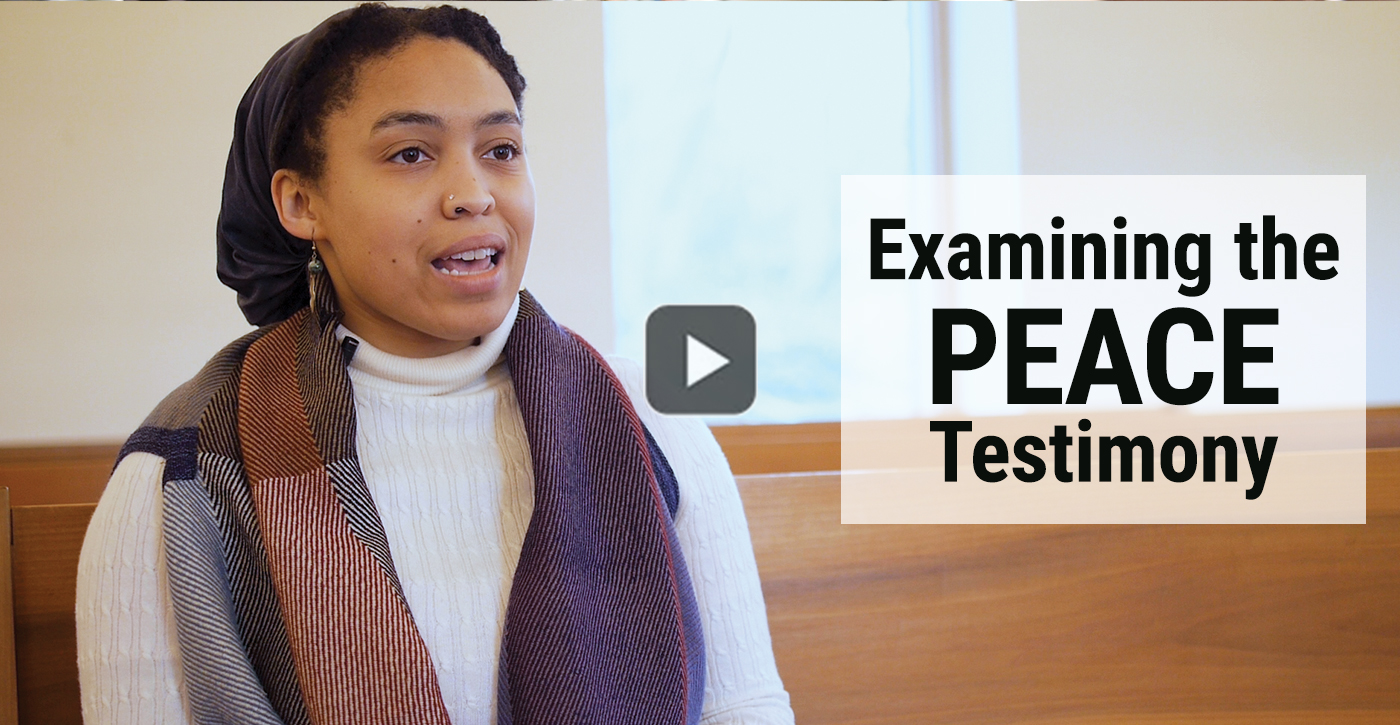I enjoyed reading a Reflections called "Living Outside the Box" by Fran Palmeri of Sarasota (Fla.) Meeting (FJ Sept. 2007). In response, here are a few of my own reflections about incorporating peace into our lives.
I was raised in a Southern Baptist home where religion was a strong mixture of love and fear. When I started working "for peace" at a young age, I quickly developed a peace-activist-versus-the-world attitude. However, at about age 40 and after the first Iraq War, I started becoming disillusioned with the peace movement. I saw many of my fellow peace activists to be self-absorbed and disconnected from the real community, and consequently fairly ineffective and irrelevant to the political debate. Many of the people I knew in the movement had serious personal and interpersonal problems.
After a great deal of thought and introspection, I came to realize that there were many other peace activists in my community. However, most of these people do not call themselves "peace activists." Based on my new view of the world, good farmers, doctors, teachers, nurses, and parents are all "peace activists." All of this is to say that in many ways we live in a world that is predominately "peaceful." If we did not, then the entire United States would look like Iraq.
Many people are peaceful and many— no, most—act in peaceful ways. In my current worldview, war is actually the aberration. Granted our society does promote and lift up war, and we can all see many examples of the problems caused by this in our society and in the world as we project our violence. But when you start to relax (a little)— accept that our imperfect world is in the hands of our Higher Power and start living an abundant life in peace—miracles happen. When you look at people first and then their racial, sexual, physical, political, and social orientation later, they start to be friendlier. We begin to see "that of God" in them and connect with them in a more profound and meaningful way.
We all have peaceful and violent sides to our personalities. When we do not acknowledge our own complicity in the world of violence we become self-righteous and pious. "Peace activists" can be cruel and violent. Militarists can be kind and peaceful.
As a result of this understanding, I have come to feel much less isolated from the world and more at peace with myself. Ironically, my influence in the community seems to grow as I embrace this thought. In the New Testament, Jesus talks about the "tree that bears good fruit." When viewing the actions of others I reflect on Jesus’ words. There are people that seem to "bear good fruit" even though I disagree with their methods or their philosophy. There are others with whom I totally agree who seem to bear bad fruit or no fruit at all.
There are many puzzles in life as we go forward. This issue of peace is very difficult to define and encapsulate. This is why I have chosen to be a Friend—because I think that waiting in humble silence is certainly one of the most likely places to achieve some understanding for myself. As I was taught in Southern Baptist Sunday School (I did learn many positive lessons there)—"It’s not my brother or my sister but me oh Lord standing in the need of prayer." And ultimately I think this is the most important existential question: What am I called to do in this world? And often, as Fran Palmeri noted, a "hug is a good place to start."


